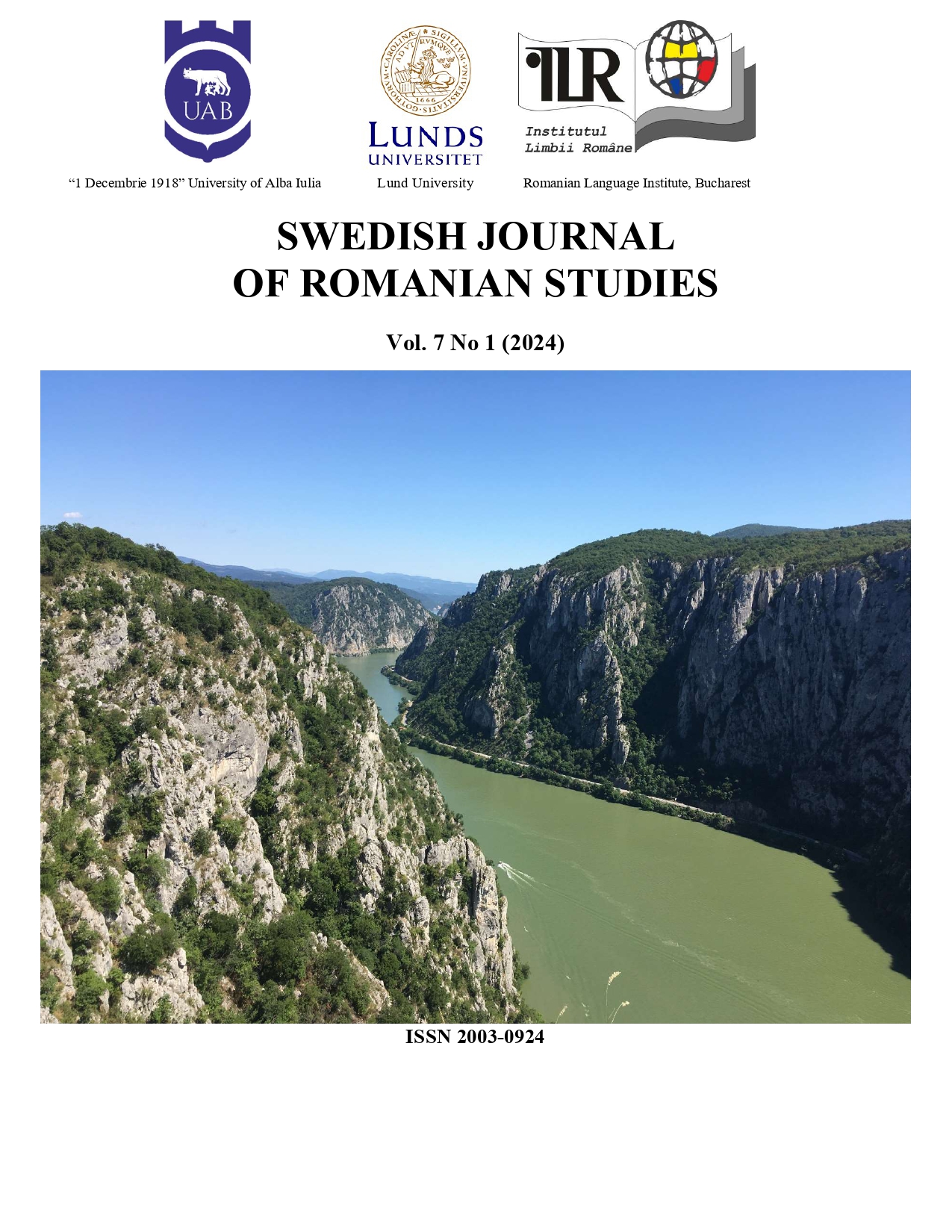Eminescu and Kabbalah
DOI:
https://doi.org/10.35824/sjrs.v7i1.25345Keywords:
Kabbalah, Archaeus, symbol, reverie, the journey of initiationAbstract
In the pages of this article, we will bring together a series of interpretations of Eminescu’s writings that prove the influence of the mysticism of Kabbalah on the great Romanian author. The understanding of Eminescu’s poems through the lens of Kabbalah is a perspective adopted by several scholars. For example, starting with G. Călinescu, Hyperion (from the poem “Luceafărul”) was compared to a sefirah. Since the influences of the Far East seem to be much more significant in the literary context in question, we will start from them and, later, correlate them with elements from the ideological background of Near Eastern mysticism. We will also point out certain aspects of the symbolism of the elements and, above all, of water – which is, ultimately, an emblem of the primordial space from which existence is born. Thus, starting from the perspective of Gaston Bachelard’s poetics of the elements, we will investigate the correlation with the mysterious Ain Soph of Kabbalah.
References
Bachelard, G. (1997). Apa şi visele [Water and dreams] (I. Mavrodin, Trad.). Bucureşti: Editura Univers.
Bachelard, G. (2005). Poetica reverie [The poetics of reverie] (L. Brăileanu, Trad.). Piteşti: Editura Paralela 45.
Béguin, A. (1970). Sufletul romantic şi visul [The romantic soul and the dream] (D. Țepeneag, Trad.). Bucureşti: Editura Univers.
Călinescu, G. (1985). Opera lui Mihai Eminescu, vol. III [The work of Mihai Eminescu], 3rd volume. Bucureşti: Editura Minerva.
Cifor, L. (2000). Mihai Eminescu prin cîteva cuvinte cheie [Mihai Eminescu through a few key words]. Iaşi: Editura Fides.
Davy, M.-M. (1998). Enciclopedia doctrinelor mistice, vol. I [The Encyclopedia of mystical doctrines], 1st volume. Timişoara: Editura Amarcord.
De Solier, R. (1978). Arta şi imaginarul [The Art and the imaginary]. Bucureşti: Editura Meridiane.
Del Conte, R. (1990). Eminescu sau despre absolut [Eminescu or about absolute] (M. Papahagi, Trad.). Cluj-Napoca: Editura Dacia.
Eminescu, M. (1905). Scrieri politice şi literare, vol. II [Political and literary writings], 2nd volume. Bucureşti: Institutul de arte grafice şi editură „Minerva”.
Eminescu, M. (1994). Opere, vol. I [Works, 1st volume]. Ediţie îngrijită de Perpessicius. Bucureşti: Editura Vestala, Editura Alutus-D.
Eminescu, M. (1990). Poezii [Poems], Iași: Editura Junimea.
Huch, R. (2011). Romantismul german [The German romanticism] (V. Nişcov, Trad.). Bucureşti: Humanitas.
Kant, I. (1981). Critica facultăţii de judecare [Critique of the power of judgment]. Bucureşti: Editura Ştiinţifică şi Enciclopedică.
Marian, R. (1999). Lumile Luceafărului – o reinterpretare a poemului eminescian [The worlds of Luceafărul – a reinterpretation of the Eminescian poem], Cluj-Napoca: Editura Remus.
Murăraşu, D. (1967). Comentarii eminesciene [Eminence comments]. Bucureşti: E. P. L..
Noica, C. (1992). Introducere la miracolul eminescian [Introduction to the Eminescian miracle]. Bucureşti: Humanitas.
Otto, R. (1996). Sacrul [The idea of the holy] (I. Milea, Trad.). Cluj Napoca: Editura Dacia.
Petrescu, I. E. (1978). Eminescu: Modele cosmologice şi viziune poetică [Eminescu: Cosmological models and poetic vision]. Bucureşti: Paralela 45.
Downloads
Published
How to Cite
Issue
Section
License
Copyright (c) 2024 Andrei Victor Cojocaru

This work is licensed under a Creative Commons Attribution-NonCommercial 4.0 International License.
Authors who publish with this journal agree to the following terms:
a. Authors retain copyright and grant the journal right of first publication with the work simultaneously licensed under a Creative Commons Attribution-NonCommercial 4.0 International License that allows others to share the work with an acknowledgement of the work's authorship and initial publication in this journal.
b. Authors are able to enter into separate, additional contractual arrangements for the non-exclusive distribution of the journal's published version of the work (e.g., post it to an institutional repository or publish it in a book), with an acknowledgement of its initial publication in this journal.
c. Authors are permitted and encouraged to post their work online (e.g., in institutional repositories or on their website) prior to and during the submission process, as it can lead to productive exchanges, as well as earlier and greater citation of published work (See The Effect of Open Access).

